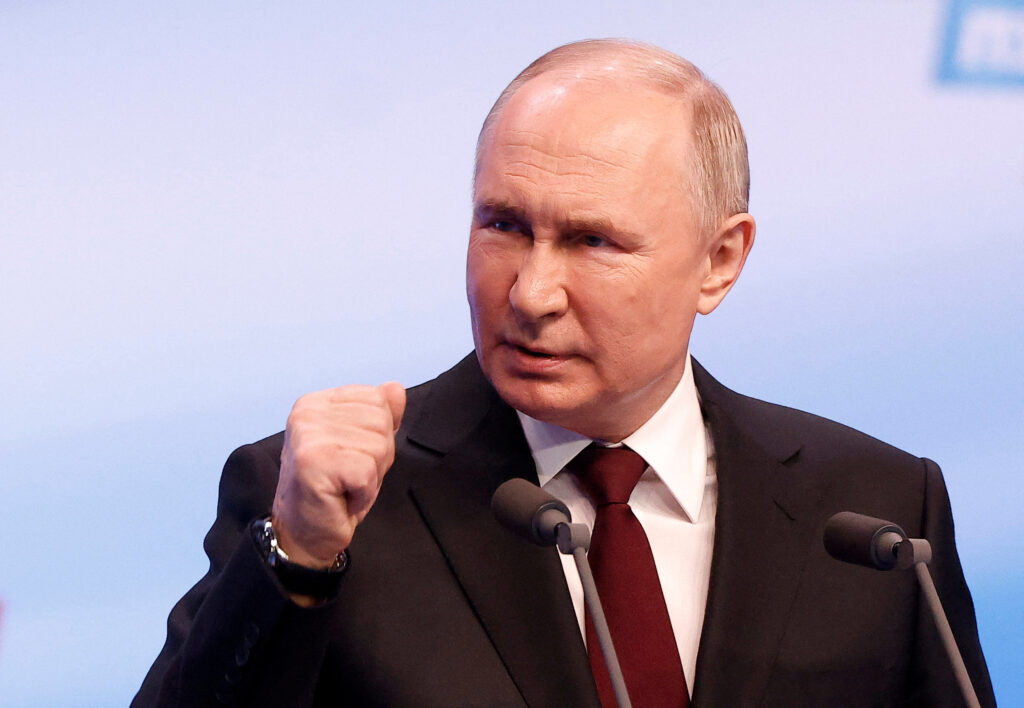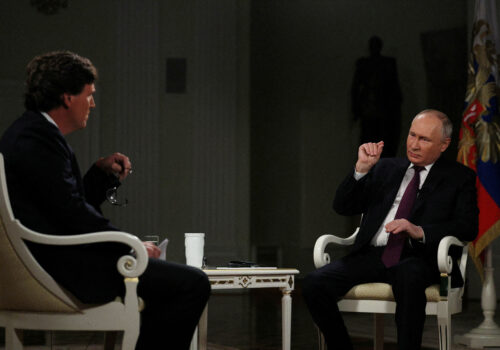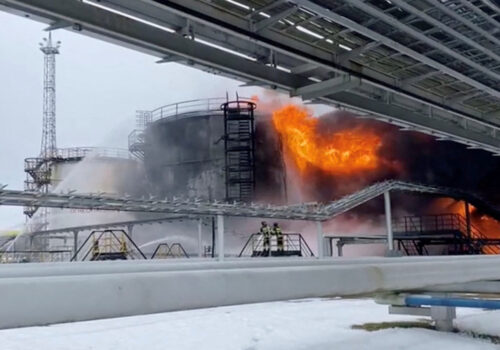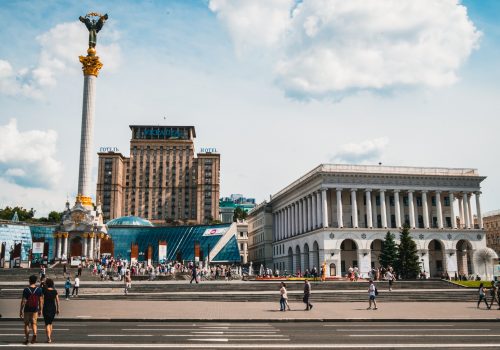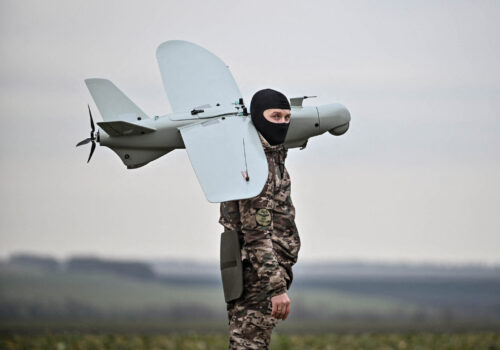
Russian victory in Ukraine would leave Europe at Putin’s mercy
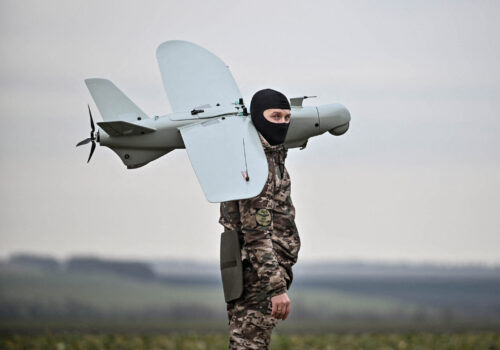
If Putin wins in Ukraine, will he go further? This is the question currently being asked with increasing urgency in capital cities throughout Europe.
Skeptics note that the failures of the past two years have exposed the limitations of the Russian military, and claim a triumphant Putin would be in no position to expand the war beyond the borders of Ukraine. This argument is comforting but short-sighted. It ignores the practical implications of a Russian victory, and underestimates the geopolitical importance of Ukraine for the security of Europe.
The re-emergence of an independent Ukraine in 1991 profoundly altered the European geopolitical landscape. For centuries prior to 1991, the Russian Empire and the USSR had exploited Ukraine’s geographical location, natural resources, and population to project power into the heart of Europe. Hundreds of thousands of Ukrainians had served in the Red Army, while the Soviet war machine had relied heavily on Ukraine’s industrial base to produce everything from warships and tanks to intercontinental missiles.
The collapse of the Soviet Union temporarily reduced the imperial threat facing the countries of Central Europe. Neighbors such as Poland and Hungary understood the strategic importance of Ukrainian statehood perfectly well and were among the first to recognize Ukraine’s independence. This new geopolitical reality shielded countries across the region from potential Russian aggression and helped pave the way for their NATO accession.
Vladimir Putin was also well aware that Ukrainian independence was a major obstacle to the revival of Russia’s great power status. From the very beginning of his reign, he made the subjugation of Ukraine a foreign policy priority. At first, he attempted to achieve this goal via political means; when this failed, he resorted to the same military methods employed by generations of his Czarist and Soviet predecessors.
Stay updated
As the world watches the Russian invasion of Ukraine unfold, UkraineAlert delivers the best Atlantic Council expert insight and analysis on Ukraine twice a week directly to your inbox.
The Russian army has suffered extremely heavy losses over the past two years in Ukraine, but this has not deterred Putin. On the contrary, with the future of Western military aid to Ukraine currently in doubt, the Russian dictator is growing visibly more confident of securing victory. If Putin is able to extinguish Ukrainian statehood, Russia’s military potential will be dramatically enhanced by the acquisition of Ukraine’s considerable resources.
Russia is already conscripting large numbers of men in occupied regions of Ukraine and using them as cannon fodder in brutal human wave offensives. If Ukraine falls, hundreds of thousands more would be forced to join the Russian military and deployed in similar fashion. As well as extra manpower, a conquered Ukraine would also provide Russia with vast natural resources, industrial strength, and agricultural wealth. Indeed, the occupation of Ukraine would allow Russia to dominate global agricultural markets.
The geographical implications of a Russian victory in Ukraine would be equally grave. Russia seized Crimea in 2014 then used the occupied Ukrainian peninsula as a springboard for the full-scale invasion of the country eight years later. As the Russian army continues to edge forward in eastern Ukraine, each advance brings Putin’s troops closer to the border with NATO.
Nobody is more conscious of the growing danger than Ukraine’s western neighbors. It is no surprise that Poland, the Czech Republic, and the Baltic states are among the biggest supporters of Ukraine and the most vocal when it comes to raising the alarm over the Russian threat. They know that if Ukraine is lost, they are next in line and will face a resurgent Russia emboldened by the success of the current invasion.
This is not to say that others are oblivious to the potentially disastrous consequences of a Russian victory in Ukraine. French President Emmanuel Macron has recently warned that European security is “at stake” in Ukraine, and has refused to rule out deploying Western troops to prevent Russia from overrunning the country.
Eurasia Center events

Influential voices in America have long recognized the geopolitical importance of Ukrainian independence. In the 1990s, former US National Security Advisor Zbigniew Brzezinski highlighted the country’s crucial role in the geopolitics of the region. “It cannot be stressed strongly enough that without Ukraine, Russia ceases to be an empire, but with Ukraine suborned and then subordinated, Russia automatically becomes an empire,” he famously observed.
During the early decades of Ukrainian independence, successive US administrations appeared inclined to follow Brzezinski’s counsel. However, from the late 2000s onward, the focus of US foreign policy began to shift away from Ukraine and the wider Eastern European region toward Asia.
This coincided with the rise of a more assertive Russia. In 2008, Russian troops invaded Georgia. Six years later, the Kremlin occupied Crimea and sparked a war in eastern Ukraine. By 2022, an emboldened Putin felt strong enough to launch the biggest European invasion since World War II. This escalating Russian aggression should serve as a painful lesson for anyone tempted to take the continued existence of an independent Ukraine for granted.
Ukraine is currently facing the most challenging period since the start of Russia’s full-scale invasion. Starved of supplies, Ukrainian troops find themselves forced to ration ammunition. In many cases, they are already unable to prevent Russia from edging forward. This is fuelling increasingly pessimistic forecasts as the spring campaigning season draws near.
The stakes could hardly be higher. If Russia’s invasion succeeds, the consequences will be felt far beyond the borders of Ukraine. The Russian military will be revitalized by the capture of Ukraine’s vast human and material resources, and will loom large on the eastern border of a NATO alliance demoralized and discredited by its failure to defend Ukrainian independence. At that point, many in the West may begin to ask why they didn’t arm Ukraine when they had the chance. By then, of course, it will be too late.
Mykola Bielieskov is a research fellow at the National Institute for Strategic Studies and a senior analyst at Ukrainian NGO “Come Back Alive.” The views expressed in this article are the author’s personal position and do not reflect the opinions or views of NISS or Come Back Alive.
Further reading
The views expressed in UkraineAlert are solely those of the authors and do not necessarily reflect the views of the Atlantic Council, its staff, or its supporters.

The Eurasia Center’s mission is to enhance transatlantic cooperation in promoting stability, democratic values and prosperity in Eurasia, from Eastern Europe and Turkey in the West to the Caucasus, Russia and Central Asia in the East.
Follow us on social media
and support our work
Image: Russian President Vladimir Putin speaks after polling stations closed, in Moscow, Russia, March 18, 2024. REUTERS/Maxim Shemetov
